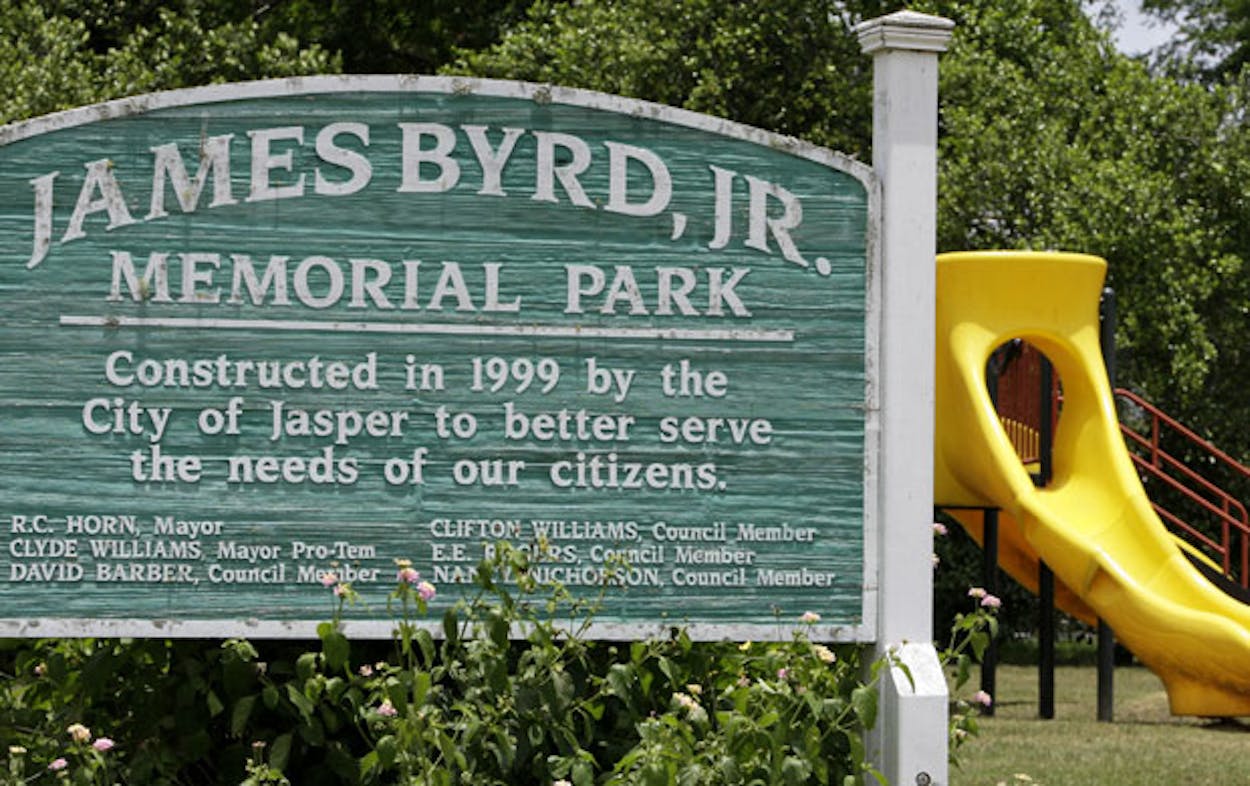A month ago today, Jasper’s first Black police chief was ousted from his job after what has been widely considered a racially charged vote by the white-majority city council.
After Rodney Pearson was appointed police chief in 2011 by a black-majority council, residents spearheaded a successful recall election that removed two black members from the council. Black leaders then launched a recall effort against Jasper Mayor Mike Lout, which failed in May.
The Texas Tribune‘s Morgan Smith covered the story in late June, and the first few paragraphs of her story paint a particularly haunting picture of the town’s troubled history:
Three weeks after Rodney Pearson became Jasper County’s first black state highway patrolman, he responded to a call from the Jasper Country Club. As he pulled up to the clubhouse, his partner told him to wait.
“‘You can’t go in here,’” Mr. Pearson said his partner told him. “‘Just sit in the car.’”
Only whites were allowed inside. It was 1992.
Despite that jarring first impression, Mr. Pearson said there was not a pattern of racism in the town where he would raise his children. That changed nearly two decades later, he said, when he became the first black police chief in the city of Jasper.
Last week, after 16 months in office, Mr. Pearson was fired by a newly elected City Council that said he had never been qualified for the job. His dismissal has touched off a feud that has dredged up bitter memories of the town’s not-so-distant past. Mr. Pearson is also connected to that chapter in Jasper’s history.
In 1998, on a Sunday morning in June, Mr. Pearson, then a trooper, said he responded to a call about a body found outside a black church on Huff Creek Road. When he arrived, he found a man’s mangled limbs and torso. What he did not know as he and the sheriff followed drag marks nearly two miles along the asphalt road was that a crime scene was unfolding before him that would bring the world’s attention to Jasper.
The trail he followed was of human flesh and blood, and it led to James Byrd Jr.’s severed head and shoulder. Suddenly the town was no longer known as the “Jewel of the Forest” but as the place where a black man was dragged through the piney woods in its backyard.
In a story for Los Angeles Times, Houston-based correspondent Molly Hennessy-Fiske describes how the depth of racial tensions in the town, noting that the wife of a police captain who had also been up for the job took to the Facebook page of a local radio station owned by Lout with an ominous message: “I think there is about to be a stink here in Jasper bigger than the Byrd ordeal,” she wrote.
At a recent public town hall meeting at Light House Church of God in Christ, Hennessy-Fiske describes how Byrd’s sister, Betty Byrd Boatner, lamented that the crisis had caused the town to backslide. “It grieves me, y’all, we’re still stuck,” she said, according to Hennessy-Fiske.
- More About:
- Politics & Policy







